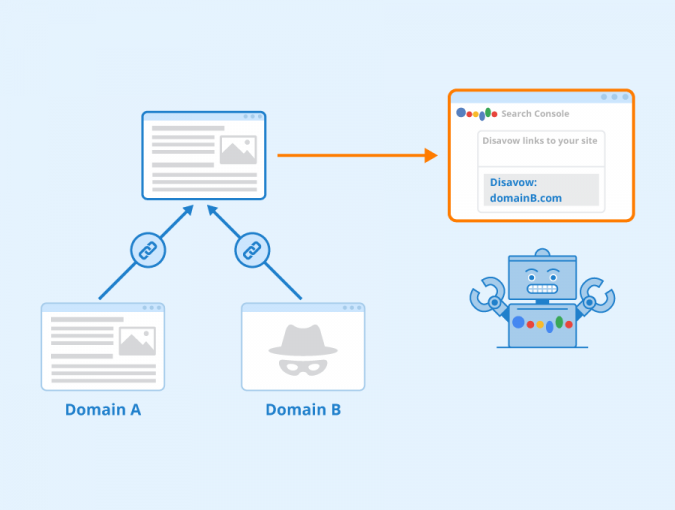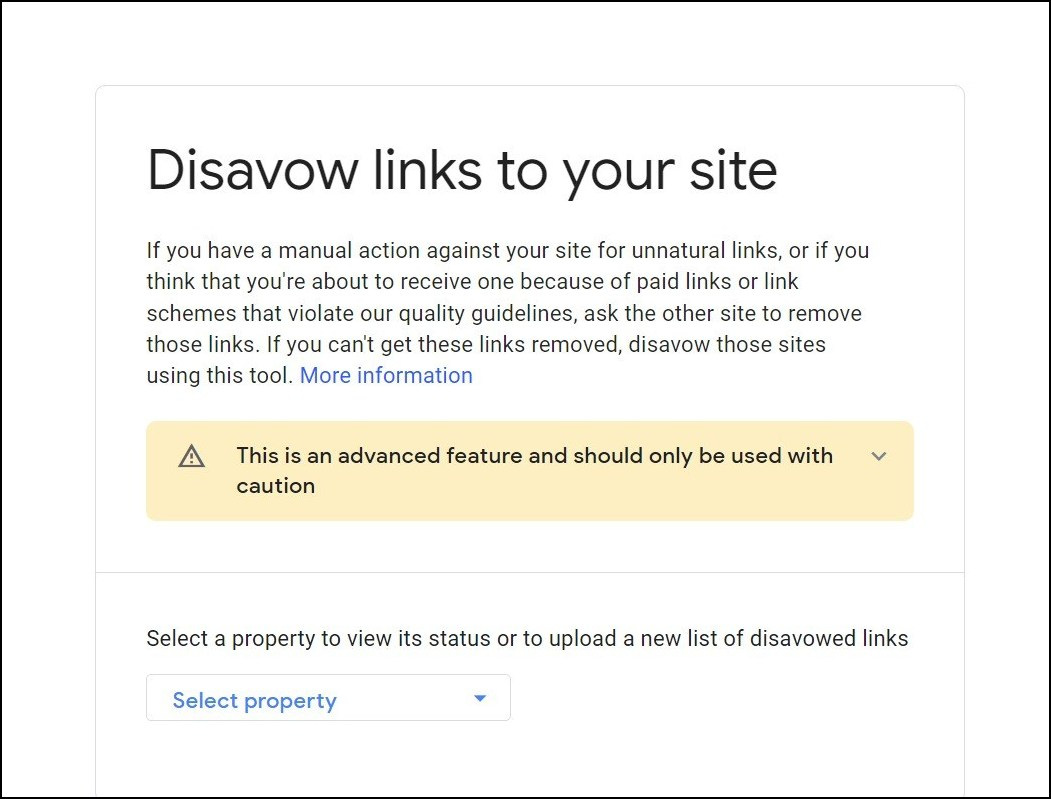
Date First Published: 2nd January 2023
Topic: Web Design & Development
Subtopic: Web Services
Article Type: Computer Terms & Definitions
Difficulty: MediumDifficulty Level: 7/10
Learn more about what the Google disavow tool is in this article.
The Google disavow tool is a tool provided by Google Search Console that allows website owners to instruct Google on which inbound links to ignore the value of. It can be used when website owners have received a manual action on their websites for artificial inbound links and they can't remove the links.
Using the disavow tool will cause the value of those inbound links to no longer take effect when Google ranks those pages. At first, it is recommended that website owners contact the owner of the sites that link to them and ask them to take them down. This will help to protect the website's image as people will no longer find spammy links and jump to conclusions about their website or business, but if that doesn't work, that is when the disavow tool can be used.
Although website owners do not have to get a manual action against their site to be able to use the disavow tool, it is only recommended to disavow backlinks if they are sure that they are causing problems for them as this feature can harm the performance of a website in Google's search results if used incorrectly.
It can harm the performance of a website as backlinks are a major Google ranking factor and disavowing a link when it is not artificial or spammy will cause a legitimate link to be lost. Disavowing links is also an irreversible process, meaning that disavowed links cannot be undone. After a link has been disavowed, the URLs will need to be recrawled and reindexed before they take effect, which can take a few weeks.
Backlinks have always been a major ranking factor for search engines, but over the years, the usage of spammy links to artificially boost the ranking of pages has increased and used to work well. Google released the Penguin algorithm update that aimed to penalise sites that artificially gain backlinks. The disavow tool was launched in October 2012. However, according to John Mueller of Google, the disavow tool is intentionally hidden because most websites do not need to use it and using it can be risky. It can be found here and can be seen below.

When the fourth version of the Penguin algorithm update was released in 2016, Google no longer penalised artificial links. Instead, Google devalued them, meaning that the links were no longer counted towards a website's ability to rank on Google. This led to more website owners using the disavow tool and most only using it if there was a manual action on their website. Although the disavow tool is not very commonly used, it is used on rare occasions when a website receives a manual action and has done as much as it can to remove the spammy links and there are still some links that it cannot take down.
If so, it is important that you tell me as soon as possible on this page.
Network Services Network Setups Network Standards Network Hardware Network Identifiers Network Software Internet Protocols Internet Organisations Data Transmission Technologies Web Development Web Design Web Advertising Web Applications Web Organisations Web Technologies Web Services SEO Threats To Systems, Data & Information Security Mechanisms & Technologies Computer Hardware Computer Software Ethics & Sustainability Legislation & User Data Protection